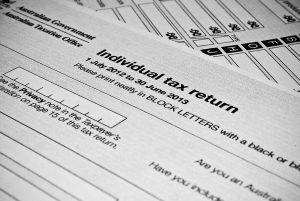 If you’re a day trader in Australia, it can be daunting to do your taxes. There isn’t much in the way of perfect guidance from the Australian Tax Office (ATO), leaving you at risk of a dreaded audit or an expensive penalty. It’s important to know the parameters of what you owe and how to utilize the tax benefits that are available.
If you’re a day trader in Australia, it can be daunting to do your taxes. There isn’t much in the way of perfect guidance from the Australian Tax Office (ATO), leaving you at risk of a dreaded audit or an expensive penalty. It’s important to know the parameters of what you owe and how to utilize the tax benefits that are available.
Day trader taxes: An overview
How much you owe depends on how much you make and lose during the tax year. What you are trading and the bracket this activity falls under also has an impact. You could find you’re not liable for any tax at all, or you may need to pay up to 45%.
Do you trade or invest?
How much tax you owe will largely depend on whether you’re classified as a trader or investor. If you’re an investor, you are not seeking to make short-term profits but to accumulate wealth from price escalation over the long term. Your profits and losses will therefore fall under the applicable capital gains tax laws. However, any gains you made from stocks bought less than 12 months ago are subject to assessment in the current tax financial year. If you made a loss from this same stock, you cannot claim it as a deduction, but you can use it to offset capital gains.
You will pay trading taxes if you only hold your stocks for a short time. The key point to note is that any gains you make from day trading are considered taxable income, but you can also claim losses as tax deductions. You pay day trading income tax on what’s left after expenses, including losses at your personal tax rate.
The benefits applicable to traders as opposed to investors
The main benefits are:
These are significant benefits that allow you to decrease your tax liability, and you should tailor your trading strategies to maximize these advantages.
The guidelines for being classified as a trader
The trader or investor classification has huge implications. If you’re stuck in a grey area, some guidelines have been clarified by case law precedent. The ATO says that as a trader, you need to be trading in a business-like manner, and the courts have made it clear that the following proof applies:
The impact of trading different instruments
CFDs, stocks, forex and futures fall under the same guidelines – give or take a few variations here or there. The ATO is not concerned with what you’re trading, but how. The big grey area is cryptocurrency.
Crypto is treated as a digital commodity. This means you are acquiring an asset rather than a currency. If you acquire 0.5 bitcoin for $7,500, you have no income to report yet in the eyes of the ATO because you essentially swapped one kind of currency – AUD – for bitcoin.
It’s different if you swap one digital currency for another, and it depends on whether you’ve made a profit or not. To determine if you made a profit, take the sales proceeds, subtract the cost of buying what you did, then subtract any associated costs, such as borrowed capital. If you made a profit and you’re a day trader, the positive proceeds are assessed normally.
There are some benefits to being a day trader. It is certainly not all doom and gloom, but it will be if you fail to keep accurate records. The best thing you can do is to invest in day trading tax software, which will keep accurate records for you as you go along. Best of all, such software is an allowable deduction.